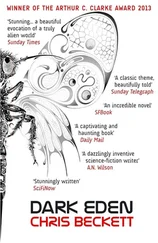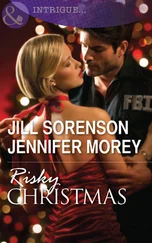When we awoke Sunday morning, she asked me if I wanted to go to church. It wasn’t quite eight, and if I’d been in Vermont I would have been making last-minute changes to the service or chatting with the choir director about a hymn or checking my props for the children’s moment. I might have been making sure there were candles on the Communion table or, perhaps, simply listening as a few members of the choir rehearsed. There was an energy then that I can liken to the sensations an actor or a stage manager must savor in the half hour before the house opens and the audience starts filing in for the eight-o’clock curtain.
“No,” I answered. “I’d rather not. But I don’t want to stop you from going. I should… ”
“You should what?”
“Well, I was going to say I should be leaving. You do have a life, after all.”
“Where would you go?”
“I don’t know. Somewhere. I do have options.”
She sat upright in bed on her knees, and her head almost touched the ceiling. “I had fun yesterday. I had fun last night. I hope you know that.”
“I do.”
“Did you?”
“Though I feel guilty saying so, yes. Yes, I did.”
“And you feel guilty because you should be in Vermont? Or because you couldn’t prevent Alice Hayward from dying?”
“Not couldn’t. Didn’t. There’s a difference. And I think I feel guilty for both reasons-though I do feel far worse about the reality that Alice Hayward is dead than I do about the fact that I’m AWOL.”
What I did not feel bad about-then or now-was my attraction to Heather Laurent. People would vilify me further that autumn by suggesting I was some sort of immoral, overly libidinous Casanova. How could I have gotten involved with another woman so soon after Alice’s death? they seemed to ask. My response-had anyone had the decency to inquire to my face-would have been rather straight-forward (assuming I even deigned to proffer a response). I would have pointed out to them that Alice’s and my affair, such as it was, had lasted but six months; that the affair had been over for two and a half months when I allowed myself to fall into bed with Heather Laurent; and that Alice’s and my separation had been amicable. I was devastated by the fact that Alice was dead and her daughter was an orphan. But sleeping with Heather Laurent was neither an act of disloyalty nor a barometer of my callousness as a person. I needed comfort, too. If there is a grimoire for grief, why should it not include romance? The bereft have taken solace in vices far worse.
“Have you ever preached on remorse?” she asked.
She slept in a T-shirt and old dance shorts with a drawstring, and abstractedly she fiddled with the cord. When she asked the question, she had the slightly puzzled look on her face that I was finding more and more appealing. It was the face she made when she was deep in thought, and it was unguarded and childlike, and it made me want to sit up in bed and kiss her. (Imagine the sorts of monstrous names I would have been called had I ever suggested during the investigation that I found something childlike in a woman to be appealing. The aspersions upon my character would have been far worse. And while my mother wouldn’t have believed that such a thing was possible, my attorney and I took dark comfort in the reality that I was a Baptist and not a Catholic, and the crimes of which I was accused, thank heavens, at least did not involve altar boys.)
“Yes, I’ve preached on remorse,” I answered. “I’ve preached on guilt and I’ve preached on shame. I’ve preached easily seven hundred and twenty-five sermons in my life. There isn’t a lot I haven’t preached on.”
“If you could make amends-”
“But I can’t make amends,” I said, cutting her off. Quickly I softened my voice, because I feared in that instant that I had hurt her feelings with my abruptness. “That’s the problem. I can’t bring Alice back. There is simply no way to make this sort of horror right.”
She fell back on the pillow and lay on her side, resting her head on her hand. I was still flat on my back. Her T-shirt was black with a pair of pink ballet shoes on it, and I liked looking up at her. Her hair was still a little wild with sleep. “You told me you never believed in angels in a literal sense,” she said after a moment.
“That’s right. Not ever.”
“‘For he shall give his angels charge over thee, to keep thee in all thy ways,’” she said, quoting the ninety-first psalm. “‘They shall bear thee up in their hands, lest thou dash thy foot against a stone. Thou shalt tread upon the lion and adder: the young lion and the dragon shalt thou trample under feet.’” I recognized that the three verses were from the King James Version.
“Can you do that with every angel reference in the Bible?” I asked.
“No way. But some.”
“Still, I’m impressed.”
“Don’t be. I’m sure you know considerably more passages by heart than I do.”
“You’d be surprised at how little I know-about anything.”
“And you’ve never, ever believed in angels. Really?” I could have given her any number of glib responses, but she deserved better than that. “For a time,” I confessed, “I believed in angelic presence: God’s light in the people around us. People behaving angelically. And sometimes I met people whose demeanor seemed angelic to me. There was a fellow in the congregation when I arrived, an old farmer. A deacon. He was seventy-seven when I got there, and I was a twenty-five-year-old pastoral novice. He was frail, but very kind, very wise. He took me under his wing and taught me all about Haverill, about the history of the church. About the ministers who had come before me. He made sure that the transition was smooth. And-and this is no small and -he taught me how to use most power tools. That deck where we sat the day we met? He and I built it together. But no, I’ve never believed in a genus or species of creature you might call an angel.”
“Nothing with halos?”
“No. Nothing with halos-or wings.”
“‘Hope is the thing with feathers,’” she said.
“Emily Dickinson?”
“That’s right.”
“She was referring to birds.”
“I’ve always found some voices angelic,” Heather said.
I thought about this. “I had one parishioner who told me he heard the voice of God in his daughter’s singing voice,” I admitted. “And there were certainly some Sunday mornings when I hated to have to follow the choir’s anthem with a sermon.”
“I didn’t actually mean singing-though I know what you’re talking about.”
“Ah, you meant a plain speaking voice.”
“I did. Some voices are more angelic than others,” she said, and for a moment I tried to recall that elderly deacon’s voice. He’d been dead seven years by then, and so it took me a moment to recapture the euphonious fusion of words that marked his speech-that marked so many of my most rural neighbors. His voice was gravelly and soft, and he laughed lightly but often. Supposedly a toddler laughs four hundred times every day and an adult barely fourteen. That deacon was an exception. Once I even preached a sermon on that-on laughter as a gift from God.
“I guess I can recall voices that were saintly and beatific,” I agreed.
“I had a feeling you could.”
“Of course, I can also recall voices that, by comparison, were downright evil.”
“You are in a dark place.”
“Apparently.”
“I suppose you’re thinking of George Hayward’s voice?”
“Actually, I was just being ornery.”
“George Hayward’s voice wasn’t demonic?”
“It wasn’t around me. But before he would hurt Alice, she said he would grow condescending. He would start talking like a law-school professor. Old-school. Socratic. He’d start asking her questions, and whatever answer she gave was going to get her in trouble. Do you think it behooves Katie’s mother to dress like a whore? Did you think you were being helpful doing a load of darks without checking with me to see if I had something-a turtleneck, maybe, a pair of jeans-I might want laundered? How did you expect me to respond when you chose to be with Ginny O’Brien instead of your husband? Are you a lesbian? He never raised his voice before he would hit her, and even when he was drunk as a sailor, he spoke like Henry Higgins. Alice always knew she was in trouble when he began doing his My Fair Lady thing.”
Читать дальше











